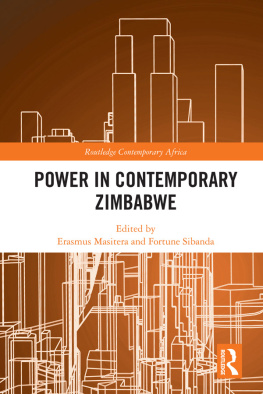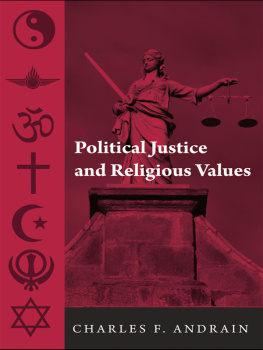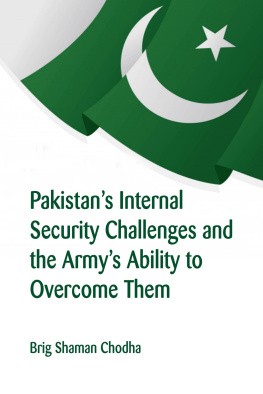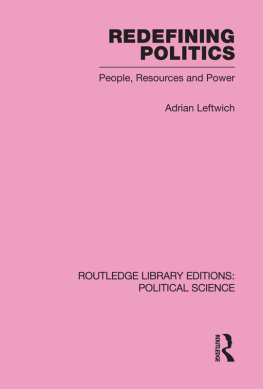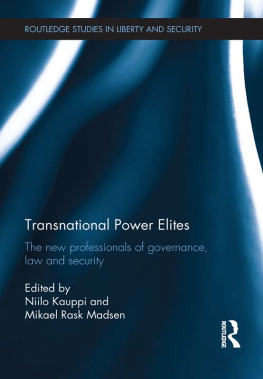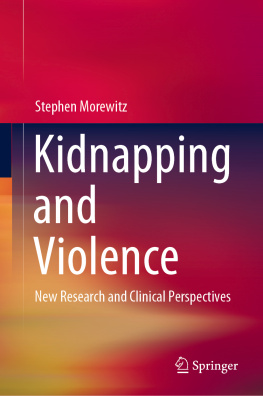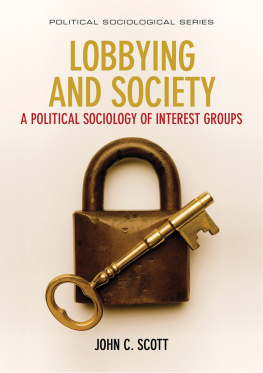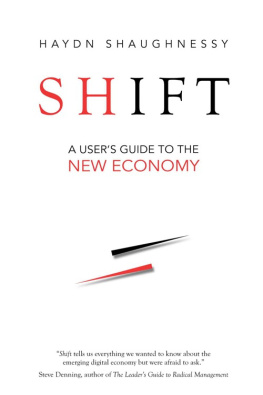Power in Contemporary Zimbabwe
In recent years, the Zimbabwe crisis rendered the country and its citizens to be a typical case of failed states, recorded the world over. Zimbabwean society was and is still confronted with different challenges which include political, economic, spiritual and social problems. Attempts to overcome these challenges have thrown light on the power that rests within individuals and or groups to change and even revolutionize their localities, communities, states and ultimately the world at large. Through experience, individuals and groups have promoted ideas that have aided in changing mentalities, attitudes and behaviours in societies at different levels.
This book brings together contributors from various academic disciplines to reflect on and theorize the contours of power, including the intrinsic and or extrinsic models of power, which pertain to individuals, communities, and or groups in order to transform society. Reflections are on various groups such as political movements, environmental movements, religious groups, advocacy groups, gender groups, to mention but a few, as they struggle against marginalization, discrimination, exploitation, and other forms of oppression showing their agency or compliance.
Erasmus Masitera is a doctoral graduate in Philosophy from the University of Pretoria, South Africa. He is also a lecturer in the Department of Philosophy and Religious Studies at the Great Zimbabwe University, Masvingo.
Fortune Sibanda holds a DPhil in Religious Studies from the University of Zimbabwe. He is an associate professor of Religious Studies in the Department of Philosophy and Religious Studies, Great Zimbabwe University, Masvingo.
Routledge Contemporary Africa
The Development of African Capital Markets
A Legal and Institutional Approach
Boniface Chimpango
China, Africa and Responsible International Engagement
Yanzhuo Xu
Joke-Performance in Africa
Mode, Media and Meaning
Edited by Ignatius Chukwumah
The Media and Aid in Sub-Saharan Africa
Whose News?
Lena von Naso
Political Culture, Change, and Security Policy in Nigeria
Kalu N. Kalu
African Science Education
Gendering Indigenous Knowledge in Nigeria
Jamaine Abidogun
Power in Contemporary Zimbabwe
Edited by Erasmus Masitera and Fortune Sibanda
First published 2018
by Routledge
2 Park Square, Milton Park, Abingdon, Oxon OX14 4RN
and by Routledge
711 Third Avenue, New York, NY 10017
Routledge is an imprint of the Taylor & Francis Group, an informa business
2018 selection and editorial matter, Erasmus Masitera and Fortune Sibanda; individual chapters, the contributors
The right of Erasmus Masitera and Fortune Sibanda to be identified as the authors of the editorial material, and of the authors for their individual chapters, has been asserted in accordance with sections 77 and 78 of the Copyright, Designs and Patents Act 1988.
All rights reserved. No part of this book may be reprinted or reproduced or utilised in any form or by any electronic, mechanical, or other means, now known or hereafter invented, including photocopying and recording, or in any information storage or retrieval system, without permission in writing from the publishers.
Trademark notice: Product or corporate names may be trademarks or registered trademarks, and are used only for identification and explanation without intent to infringe.
British Library Cataloguing-in-Publication Data
A catalogue record for this book is available from the British Library
Library of Congress Cataloging-in-Publication Data
A catalog record for this book has been requested
ISBN: 978-1-138-47914-2 (hbk)
ISBN: 978-1-351-06650-1 (ebk)
Typeset in Times New Roman
by Apex CoVantage, LLC
Edmore Dube holds a DPhil in Christian-Muslim Dialogue (2003) and a Masters in Religious Studies (1995) from the University of Zimbabwe. He is currently a lecturer in Biblical and Islamic Studies in the Department of Philosophy and Religious Studies, Great Zimbabwe University. Dube has a passion for religion and ethics, particularly how religious institutions can impact positively on public health, business and human rights. He has a special concern for the interrogation of theological positions with the intention of envisioning a better world order informed by interreligious dialogue that would curb the radicalization of religion resulting in polarization and armed conflicts in society. Email:
Ephraim Taurai Gwaravanda holds a Doctor of Literature and Philosophy in Philosophy from the University of South Africa (UNISA). He is a postdoctoral fellow at Ali Mazrui Centre for Higher Education Studies at the University of Johannesburg, South Africa (20172018). He is a philosophy senior lecturer at Great Zimbabwe University where he teaches Advanced Logic, Metaphysics and Philosophy of Law. His research interests are in the areas of Indigenous Knowledge Systems, Globalization, Epistemic Justice, Governance and Legal Philosophy. He has published several articles with international peer reviewed journals. Email:
Elizabeth Farisai Hove holds a Masters degree in Communication and Media Studies from the University of Zimbabwe. She currently works as a Media and Cultural Studies Lecturer in the English and Media Studies Department in the Simon Muzenda School of Arts, Culture and Heritage at Great Zimbabwe University in Masvingo, Zimbabwe. Her research interests include Media and Popular culture, Gender and the media, New Media and Audience research. Email:
Bernard Pindukai Humbe is a PhD candidate at the University of Fort Hare, and he is lecturing in the Department of Philosophy and Religious Studies, Great Zimbabwe University. He is a subscribed member of ACLARS. His areas of research interest include religion and power, symbolism of animals in African Indigenous Religion, Religion and Traditional Law. Email:
Elias G. Konyana recently completed his doctoral studies with the University of KwaZulu-Natal, Republic of South Africa. He is a lecturer and academic researcher in the School of Arts, Culture and Heritage Studies, Department of Philosophy and Religious Studies at Great Zimbabwe University in Masvingo. He teaches Logic and Ethics at both underground and postgraduate levels. Konyanas research interests are rooted in Ethical Philosophy, unpacking ethical issues from law and culture. To date, Elias has presented several papers at regional and international conferences on the link between ethics, culture and the law. He is also a non-executive member of CODESRIA. Email:
Shoorai Konyana holds a Master of Education degree (Curriculum Studies), Special Honours in Religious Studies and Bachelor of Education (Primary Education) degrees specialising in Religious Studies. She is the Chairperson for Teacher Education Research Conference (TERC) Reviewers Committee for the Teacher Education Research Conference (TERC) in Zimbabwe and a member of the TERC National Research Chairpersons. Currently, she is a lecturer of Religious and Moral Studies at Mkoba Teachers College. She is interested in the role of religion and socio-economic development. She has published articles on Religion and Education. She is an affiliate member of Southern African Society for Education (S.A.S.E). Email:

